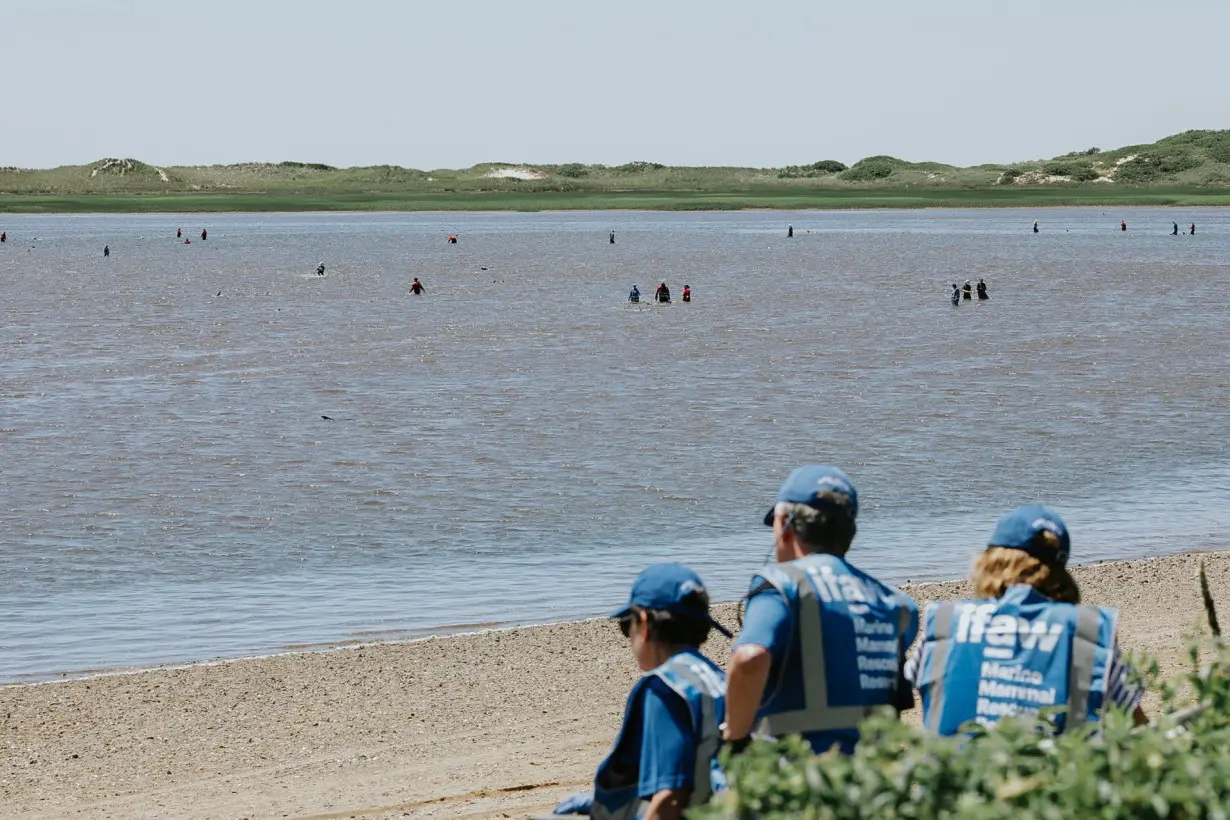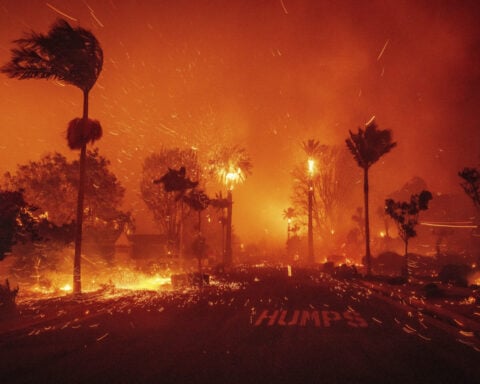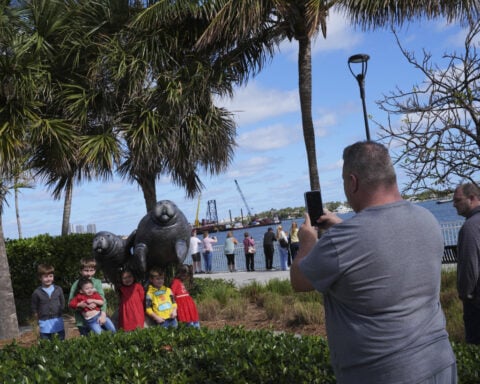(CNN) — More than 100 dolphins were stranded off Cape Cod, Massachusetts, on Friday, in what the International Fund for Animal Welfare described as possibly “the largest single mass stranding event” in the organization’s 25-year history.
The dolphins were found Friday in Wellfleet in an area called the “Gut” or Great Island at the Herring River, which Stacey Hedman, the fund’s communications director, described as a “very difficult location with dangerous mud.”
The town of Wellfleet is a little over 100 miles southeast of Boston.
The non-profit, which rescues, rehabilitates and releases animals, described the Herring River Gut as “the epicenter of our mass strandings” in a Facebook post.
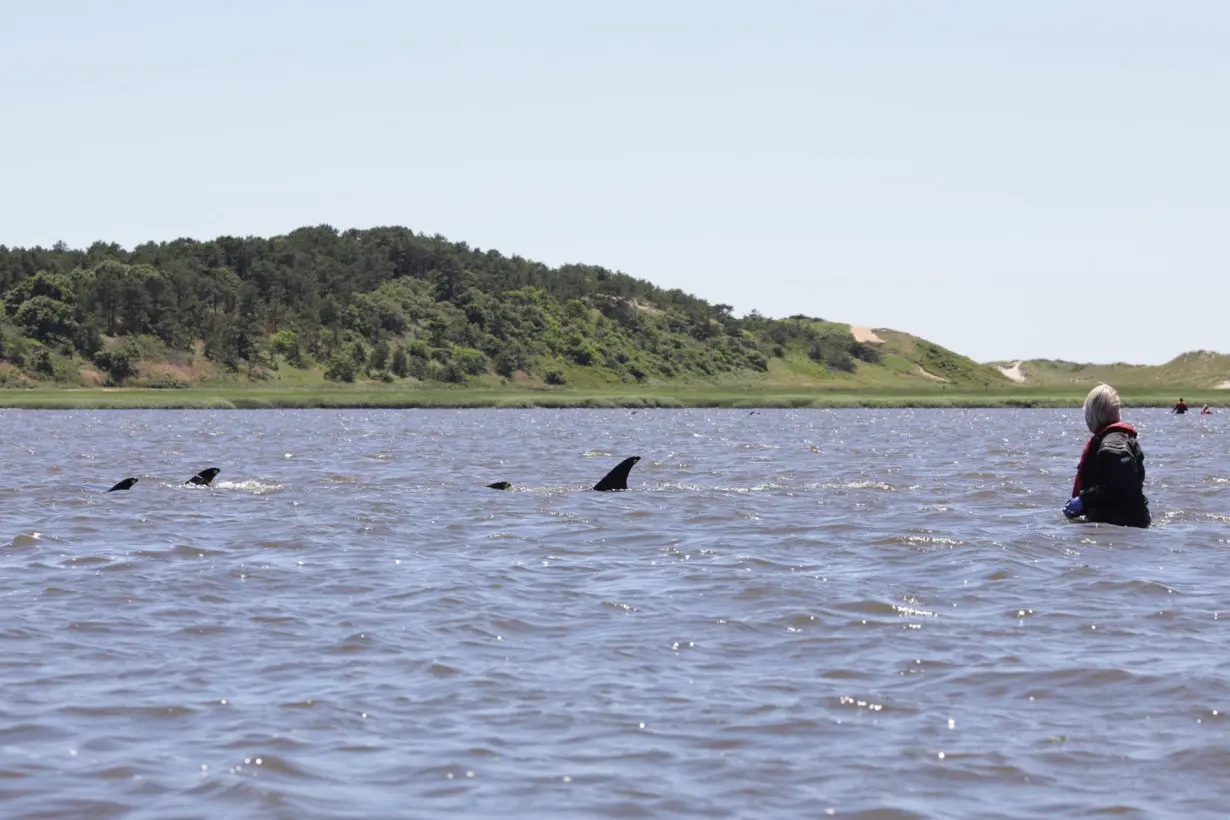
“We had 125 Atlantic white-sided dolphins strand and 10 died before we arrived,” Hedman said in an email to CNN on Friday.
“The plan, given the number, is to triage and aim to support animals, refloat and herd as many as possible,” Hedman said. “Luckily, it is cooler today, but these animals will risk sunburn and overheating until the tide rises, and then we have the challenge of herding them into deeper water.”
The rescue operation, in which at least 25 fund workers and 100 volunteers assisted, was ongoing by early Friday evening an hour after high tide, according to Hedman.
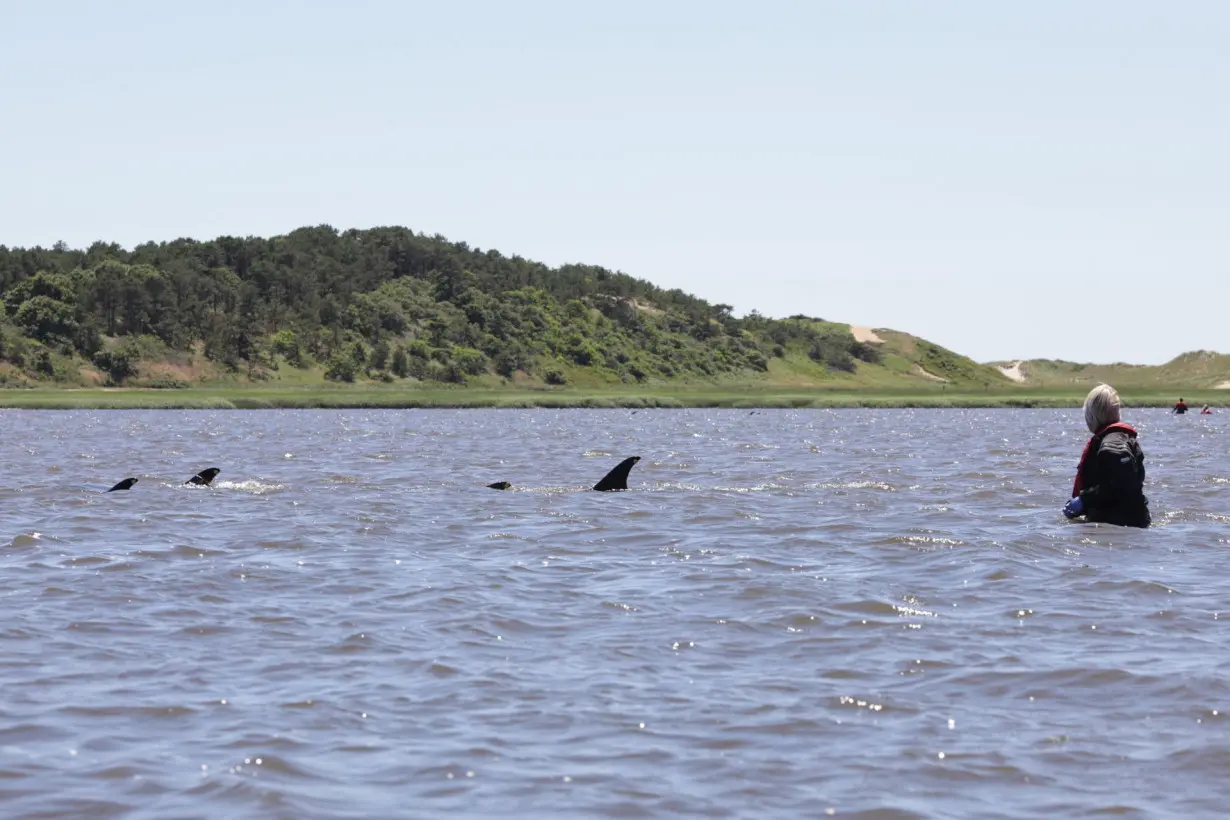
The Whale and Dolphin Conservation, the Center for Coastal Studies, AmeriCorps of Cape Cod and the New England Aquarium are also supporting the operation.
“We estimate 115 live dolphins, and we’re continuing to encourage them further out of the shallow mud flats,” Hedman told CNN Friday evening. “The tide in this area can be 10-11 feet, and can make a dramatic difference in just a few hours.”
During the earlier low tide shortly before 11:30 a.m., the marine mammal rescue team, while on foot, attempted to herd the dolphins out of the estuary and into the deeper waters offshore, according to the fund.
The high tide just before 5 p.m. worked in rescuers’ favor as they used the rising tide to refloat the animals, Hedman said.
There are three small vessels in the water “to continue herding and using underwater pingers (noise) to urge the dolphins in the right direction,” according to Hedman.
She noted there is no set explanation for why dolphins strand.
“Cape Cod is a global stranding hotspot due to the curvature of our shores and the fluctuation of our tides,” Hedman said.
More dolphins get stranded along Cape Cod’s 12-mile stretch of shoreline than any other place globally, according to the fund.
CNN’s Ashley R. Williams contributed to this report.
The-CNN-Wire
™ & © 2024 Cable News Network, Inc., a Warner Bros. Discovery Company. All rights reserved.

 Germany sees meat exports to EU continuing after foot-and-mouth case
Germany sees meat exports to EU continuing after foot-and-mouth case
 Parliament speaker to lead Taiwan delegation to Trump's inauguration
Parliament speaker to lead Taiwan delegation to Trump's inauguration
 German economy contracted 0.2% in 2024
German economy contracted 0.2% in 2024
 Middle East latest: Palestinian prime minister says Palestinian Authority should run Gaza in future
Middle East latest: Palestinian prime minister says Palestinian Authority should run Gaza in future
 Nokia signs multi-year patent license agreement with Samsung
Nokia signs multi-year patent license agreement with Samsung
 Irish parties secure 'comfortable majority' for new government
Irish parties secure 'comfortable majority' for new government
 Bayern Munich signs US youngster Bajung Darboe from LAFC
Bayern Munich signs US youngster Bajung Darboe from LAFC
 Novak Djokovic breaks a tie with Roger Federer for the most Grand Slam matches in tennis history
Novak Djokovic breaks a tie with Roger Federer for the most Grand Slam matches in tennis history
 China's RedNote: what you need to know about the app TikTok users are flocking to
China's RedNote: what you need to know about the app TikTok users are flocking to
